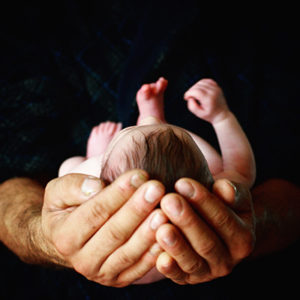“Sing, O barren one, who did not bear;
break forth into singing and cry aloud,
you who have not been in labor!
For the children of the desolate one will be more
than the children of her who is married,” says the Lord. | Isaiah 54:1
This Sunday, we looked at the story of Zechariah and Elizabeth and the miraculous birth of John the Baptist. This child is born to parents who could not previously have children, specifically, it tells us, because the mother was barren. Those who have had trouble conceiving know that there is a lot of struggle and feelings of inadequacy when you cannot get pregnant. In the Biblical time period, this was multiplied by the social stigma that went along with it; to have children was a blessing and to not be able to was seen as a curse.
Over and over again, we see God reversing this curse and giving a child to those who could not conceive. We see this in the wives of the patriarchs: Abraham, Isaac, and Jacob. God promised a great nation and then provided it through Sarah, Rebekah, and Rachel (and Leah). It did not come easily. All three of these women were barren and required God’s tangible intervention to fulfill His promises.
The purpose for God working through those who could not have children on their own, was to make it abundantly clear that he was the source of these blessings (we see this in the prophecy from Isaiah above). James 1:17 tells us:
Every good gift and every perfect gift is from above, coming down from the Father of lights, with whom there is no variation or shadow due to change.
Every good thing comes from God, which includes every child that is born into this world. At times, we can begin to believe that all of the laws of nature and biological processes happen apart from Him. By choosing the childless to carry these children of promise confirms God’s hand in the process. Not only that these children are called out, but that God is actively involved in all parts of His creation.
Additionally, the act of producing life from a barren woman is God healing a part of His creation that has been broken. In the song Joy to the World, we sing:
No more let sins and sorrows grow,
Nor thorns infest the ground;
He comes to make His blessings flow
Far as the curse is found.
Curse here is different from the idea of smiting the barren with their affliction. The curse is the result of sin wreaking havoc on all parts of life. A couple who can not have children are suffering one of the unintended consequences of evil coming into God’s perfect creation (all sickness and death fit into this as well). When God chooses to give life to the barren, he is making His blessings flow as far as the curse is found. He is not only active in all parts of our lives, but is active in a particular direction: to bring about redemption where sin has destroyed.
Some of this destruction is very personal. In the case of a barren couple, the inability to conceive is much more than a theoretical consequence, it bears on every part of life. The emotional weight is part of every relationship. God knows this. He is not only fulfilling a plan and revealing His sovereignty, but in blessing the barren with children, He is showing His care for the suffering. We see this in Elizabeth’s response in Luke 1:25:
Thus the Lord has done for me in the days when he looked on me, to take away my reproach among people.
God is working all things together for good, and ALL THINGS does not just mean the big, monumental elements. It means the issues that are very personal and painful for us. Our HOPE comes from knowing that God is actively reversing the results of sin in every part of His creation, including our own individual lives. Because of this, we can respond:
He rules the world with truth and grace,
And makes the nations prove
The glories of His righteousness
And wonders of His love.

